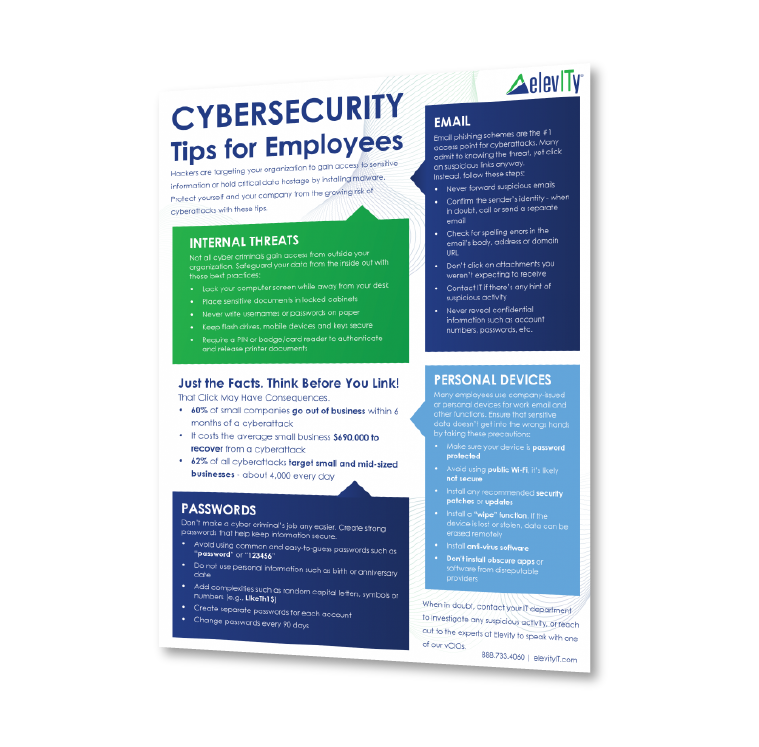Remote work is here to stay for many businesses, and the need for employees outside the office to access information on demand is crucial. The impact mobile work has had on many enterprises is turning out to be a positive one, resulting in better communication, collaboration and flexibility.
Still, it’s important to use the right tools for the job, especially when it comes to finding the best file sharing softwares that’ll do the trick.
What to Look for in a File Sharing Service
Cloud storage services and access to digital files, documents, lists and other work-related functions must be easy to use, intuitive, reliable and, most importantly, secure. The technology must also work across multiple devices, from smartphones and tablets to desktop computers and laptops, able to send files to and from user accounts with ease. Versatility and adaptability are key.
Some sharing sites offer free plan options and drag-and-drop features, but most businesses will need to invest in paid plans with better options and security functions.
So, what are the best file sharing options out there for 2023? Depending on your needs, here are some popular options to consider.
- Microsoft OneDrive
- Google Drive
- OneHub
- eFileCabinet
- DropBox Business
- MASV
- Box
- Wire
- WeTransfer
- FileCloud
Many of these platforms have limitations in one way or another, so it’s important to assess your particular business needs prior to making a decision. Let’s take a closer look at what each service offers.
1. Microsoft OneDrive
One of the most popular file sharing services is one that has its hands in many businesses and their successes already: Microsoft OneDrive. Microsoft OneDrive is a file management software that can host hundreds of file types, operated by the tech giant as part of the Microsoft 365 suite of online services.
Plans for businesses currently start at $6 per user per month, which gets you 1 TB of cloud storage per user as well as web and mobile versions of Office apps. Climbing up the tier ladder, plans include more services for higher fees, like Microsoft 365 Business Premium for $22 per user per month, which adds advanced security tools and cyber threat protection to the mix.
2. Google Drive
Another industry titan is Google, and many users are already familiar with Google Drive since they’ve used the platform’s 15 GB of free storage space for backing up personal files or simply having a Gmail address. This familiarity with Google’s cloud storage and file sharing gives employers a leg up in terms of reducing training time and costs. File syncing of data here is automatic with all devices linked to the account, and changes are saved automatically — something anyone with a hectic schedule can appreciate.
Viewing or editing permissions can be adjusted, and even people outside the organization can be invited to view, download, share and collaborate on files. Documents, images, spreadsheets and more can be organized easily, and the integration with other Google products, including Search, makes the whole process even more convenient.
Read More: Top 10 Remote Work Tools to Improve Employee Productivity
3. OneHub
Several well-known brands rely on OneHub, including Starbucks, Aflac, AARP and others. Features include easy uploading and file organization, watermarking, file previews and the ability to collaborate with others. For those concerned with data security, OneHub promises robust role-based permission controls, two-factor authentication, audit trails, custom session timeouts and more.
OneHub currently offers four tiers of pricing, which you can choose based on your business needs, as well as a 14-day free trial.
4. eFileCabinet
Scalability matters, and eFileCabinet advertises itself as a repeatable solution for data sharing that’s affordable for business. It allows for customized workflow automation and document approvals, sharing and organizing with a real-time dashboard, and it can integrate with other business software.
This software provides data governance and security, with templated directories that keep files organized and searchable. Mobile functionality is easy to use, and users say it saves them time, money and space.
5. Dropbox Business
Dropbox is another service that’s familiar to many users since it was one of the first file sharing platforms on the scene. Because of this, it’s also among the most popular. Several third-party apps integrate with Dropbox, such as Office 365, Google Suite, Slack and others. This is a great service to use for anyone looking for something more familiar and name recognition that can actually deliver the goods.
Dropbox’s Groups feature, which allows users to create and manage member lists, is especially handy for smooth collaboration. Its in-depth audit logs can help companies track their data sharing, even with those who are outside the company. Their Advanced and Enterprise pricing tiers feature unlimited storage options, and they have a free trial period to help you get a taste before you buy.
6. MASV
MASV (pronounced “massive”) is another file-sharing platform that won’t necessarily take the place of a server, but if you have massive files you need to securely share, it has your back. One unique feature of MASV is its pay-as-you-go fee structure. You only pay for the data you transfer, with no contracts, no subscriptions, no file size limits and no usage commitments.
This product allows for vast file transfers without additional hardware, apps or plugins. Enter the recipient's email, choose the files or folders and, voila, it's done. Encryption during transmission and storage keeps files secure and accessible using a unique URL.
7. Box
Trusted by many, including the United States Air Force, Box provides file sharing and other tools to help businesses collaborate. Their automated workflows and machine learning integrations separate them from other options. Advanced features, such as digital asset management, contract management, HR onboarding, sales enablement and custom app development, benefit multiple departments.
The platform also boasts advanced security controls, encryption and other measures to keep your data secure and comply with GDPR, HIPAA, PCI and other regulations. Box offers four pricing levels: Business, Business Plus, Enterprise and Enterprise Plus.
Learn More: The Best Web Browsers for Business
8. Wire
If you’re primarily looking for a collaboration and file-sharing application rather than a major data storage service, consider Wire. It offers additional unique features and functions, like team chats that include external members, video and voice calls, and other methods of cooperation.
Wire’s dashboards and design are attractive and intuitive, with end-to-end encryption helping to ensure any data and file sharing is secure. Three different pricing tiers are available: Wire Basic, Wire for Enterprise and Wire for Government.
9. WeTransfer
Creativity-heavy businesses often have larger file types than a typical spreadsheet or Word document. Graphic designers, animators, web developers, videographers, voiceover talent, design engineers and others who create large files need a little extra boost in capabilities to ensure files don’t suffer from damage or compression when transferred over.
WeTransfer may have gotten its start with its notable file sharing functionality, but the company has reached into more creative endeavors with additional tools that can work well with the original transfer service.
10. FileCloud
FileCloud is another popular choice for businesses, and it offers multiple ways to access your files without even needing a VPN. Using FileCloud, you can share files easily and securely via browser, mobile app, mapped drive, WebDAV, or sync client. Host your own server, or let FileCloud manage the technicalities and host securely on their server.
FileCloud’s collaboration features allow comments, alerts and custom workflows, and it even lets users view and track file activity for a good “paper trail.” The platform is also known for its robust security, password protection and data governance and compliance initiatives.
New Software for a New Era of Business
We’re still in the middle of a cosmic shift in conducting business as technology like these file sharing products continues to advance. You can set yourself up for a better remote experience by investing in the right virtual desktop infrastructure, or VDI, to keep remote workers’ connections secure and productive.
We created an eBook that details a top-tier VDI: Microsoft Azure. The eBook contains information on how Azure tackles major security threats, what kind of storage capacity you can expect and so much more. Click the link below to get started on accessing your free copy of our eBook, Advancements in Virtual Desktop Infrastructure (VDI) Technology, today.










